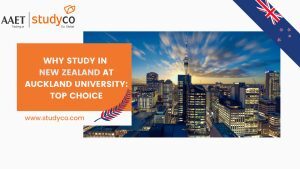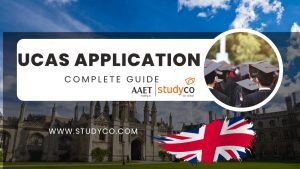Requirements and Pathway to Permanent Residency in Australia
The Skilled Independent Visa (Subclass 189) offers a pathway to permanent residency in Australia for skilled workers who are not sponsored by an employer or a family member. This visa allows you to live and work in Australia indefinitely, providing you with access to various benefits as a permanent resident. Understanding the key requirements for this visa can significantly enhance your chances of successfully navigating the migration process.
To qualify for the Subclass 189 visa, you must possess skills in an occupation listed on Australia’s Skilled Occupation List. The application process evaluates your qualifications, work experience, and English language proficiency to ensure you meet the standards set by the Australian government. Being well-prepared and informed about these criteria is essential in making your migration journey smoother and more efficient.
Applying for the Skilled Independent Visa is not just about fulfilling requirements; it’s about seizing the opportunity to build a new life in Australia. Whether you are seeking better career prospects or a change in lifestyle, this visa could open doors to your aspirations in a diverse and thriving environment.
Overview of Skilled Independent Visa (Subclass 189)
The Skilled Independent Visa (Subclass 189) offers a pathway for skilled workers to live and work permanently in Australia. This visa is designed for individuals who possess skills in demand within the Australian workforce. Understanding the eligibility criteria, application process, and benefits is crucial for prospective applicants.
Eligibility Criteria
To qualify for the Skilled Independent Visa (Subclass 189), you must meet several key requirements. First, you need to be under 45 years of age when you submit your application.
Next, ensure you have a relevant occupation listed on Australia’s Skilled Occupation List (SOL).
A positive skills assessment from a designated assessing authority is also essential, confirming that your skills align with your nominated occupation.
Furthermore, you must attain a minimum score of 65 points in the points test, which evaluates your age, English proficiency, experience, and educational qualifications.
Application Process
The application process for the Skilled Independent Visa (Subclass 189) involves multiple steps. Begin by submitting an Expression of Interest (EOI) through the SkillSelect system, showcasing your skills and qualifications.
Once you receive an invitation to apply, you can proceed with your visa application.
You will need to compile necessary documentation, including your skills assessment, proof of English language ability, and identification documents.
The processing time for this visa can vary and might take several months. Therefore, it’s essential to prepare your application thoroughly to avoid delays.
Visa Features and Benefits
The Skilled Independent Visa (Subclass 189) offers various features and benefits. As a permanent resident, you have the right to live and work anywhere in Australia.
You can access Medicare and other social services, which enhance your quality of life.
This visa also allows you to apply for Australian citizenship after meeting specific residency requirements.
Additionally, there is no requirement for employer sponsorship, granting you greater flexibility in finding employment suited to your skills and preferences.
Eligibility and Requirements
To apply for the Skilled Independent Visa (Subclass 189), you must meet specific eligibility criteria. Key areas include points-based assessment, qualifications in a skilled occupation, English language proficiency, and health and character evaluations. Meeting these requirements is vital for your successful application.
Points-Based Assessment
Your eligibility is assessed based on a points system. You need to score a minimum of 65 points to apply. Points are awarded for factors such as age, education, work experience, and other relevant skills.
Every candidate’s profile is unique, so ensure you claim points accurately to maximize your score.
Qualifications and Skilled Occupation
You must have a relevant qualification in a skilled occupation listed on Australia’s Medium and Long-term Strategic Skills List (MLTSSL). This ensures your skills are in demand in the Australian labour market.
Your qualification should be assessed by the relevant assessing authority. It needs to meet the requirements of the specific occupation you intend to pursue.
Make sure your skills match the Australian standards and that you have the necessary documentation to support your claims.
English Language Requirements for Australia
Demonstrating English language proficiency for Australia is essential for your visa application. You must sit for an accepted test, such as the IELTS or PTE, and achieve a minimum score.
IELTS: At least 6.0 in each component
PTE: Minimum score of 50 overall
Exemptions may apply for certain candidates based on educational background or nationality.
You should prepare and book your English language test early, as it may take time to receive your results.
Health and Character clearance Criteria
Health requirements for Australia are mandatory parts of the application process. You will undergo a medical examination to confirm you meet health standards. This may involve tests for contagious diseases and evaluations by designated physicians.
For character criteria, you must provide police clearances from all countries you’ve lived in for 12 months or more in the last 10 years.
Both assessments ensure you do not pose a risk to Australia’s public health and safety. Keep these requirements in mind as you gather your application documents.
The Path to Permanent Residency
Achieving permanent residency (PR) in Australia through the Skilled Independent Visa (Subclass 189) involves several key steps, including the visa grant process, understanding your rights and obligations, and exploring the pathway to citizenship.
Visa Grant and Conditions
When you are granted the Skilled Independent Visa (Subclass 189), you gain PR status in Australia. This visa allows you to live, work, and study anywhere in the country.
Key conditions of the visa include:
Duration: The visa is granted indefinitely, allowing you to remain a permanent resident.
Compliance: You must adhere to Australian laws and visa conditions.
Travel: You may travel in and out of Australia for five years from the date of grant. After this period, you will need a Resident Return Visa to re-enter.
Your visa grant confirms your eligibility to access various services, including Medicare and public schooling for your children.
Rights and Obligations of PR
As a permanent resident in Australia, you have specific rights and obligations.
Rights include:
- Access to healthcare through Medicare.
- The ability to sponsor eligible relatives for PR.
- Work rights without restrictions (work anywhere in Australia).
Obligations entail:
- Compliance with Australian laws, including taxation.
- Ensuring you maintain your residency by living in Australia for a minimum period.
- Reporting any changes in personal circumstances, such as criminal convictions or changes in family status.
- Understanding these rights and obligations is crucial to maintaining your permanent residency in Australia and integrating effectively into Australian society.
Citizenship Pathway
Becoming a citizen is a possibility after holding PR status for a certain period.
To apply for citizenship in Australia, you must meet the following criteria:
Residency Requirement: You must have lived in Australia for at least four years, including one year as a permanent resident.
Good Character: You should demonstrate good conduct during your stay.
Citizenship Test: Passing a citizenship test to demonstrate knowledge of Australian history, values, and government.
This pathway reflects a commitment to becoming a full member of Australian society, with all the rights and responsibilities that come with citizenship.
Legal and Migration Advice
Seeking professional guidance can clarify the complex visa application process. Registered Migration Agents are equipped to assist you with navigating the requirements of Subclass 189. They can provide tailored advice on documentation, eligibility, and appeal procedures.
You can also refer to the Migration Institute of Australia for resources and listings of qualified migration agents. Consultations with a legal expert ensure that you understand your rights and the implications of your decisions during the migration process in Australia.






